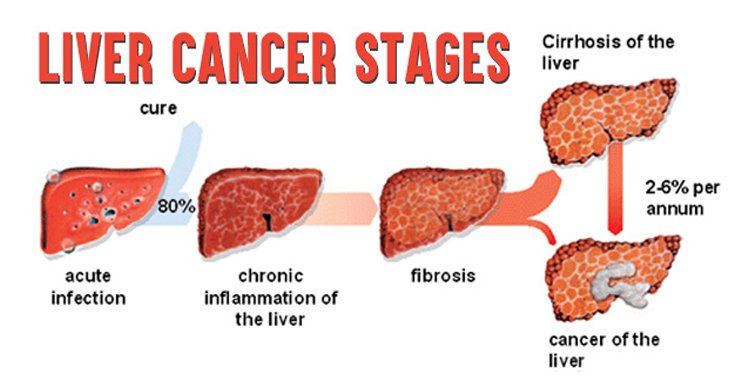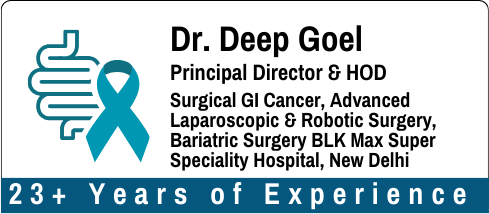Can Early-Stage Liver Cancer Be Completely Cured?

When someone is diagnosed with liver cancer, the immediate question that comes to mind is whether it can be cured. Liver cancer staging plays a crucial role in determining the treatment options and outcomes. The earlier the cancer is detected, the higher the chances of a successful treatment. Many patients diagnosed with early-stage liver cancer have gone on to lead normal lives after treatment, offering hope to others. In fact, early diagnosis combined with advanced treatment methods can significantly increase survival rates.
Dr. Deep Goel, a renowned expert in liver cancer treatment, once said, “Early detection is not just about treating the cancer; it’s about giving patients a second chance at life.” But how exactly does early-stage liver cancer unfold, and what treatment options are available? Let’s understand.
How is liver cancer staged?
The staging of liver cancer is essential in evaluating the extent of the disease. Radiology techniques, such as CT scans, MRIs, and PET scans, help doctors visualise the tumour, assess its size, and determine whether it has spread to other parts of the body. Dr. Goel emphasises, “Understanding the stage of the cancer helps in charting out the most effective treatment path. Early-stage cancers often provide the opportunity for curative treatments, such as surgery or ablation.”
There are several systems used to stage liver cancer, but most doctors rely on the American Joint Committee on Cancer (AJCC) TNM system. It’s a complex process, but in simple terms, staging helps to identify the size of the tumour (T), whether it has spread to nearby lymph nodes (N), and whether it has metastasised to distant organs (M). The stages of liver cancer are often grouped into four broad categories, making it easier for patients to understand.
What are the 4 stages of liver cancer?
Understanding the 4 stages of liver cancer is critical to grasp the prognosis and treatment possibilities:
- Stage I: This is where the tumour is confined to the liver and hasn’t spread to the blood vessels. At this stage, surgical removal of the cancer, known as a resection, is often the best option. Dr. Goel shares that “Many patients at this stage are candidates for curative treatments, with a high likelihood of success.”
- Stage II: Here, the tumour might have started to invade blood vessels, or there may be more than one tumour, all still within the liver. Treatment options may include liver transplants or local therapies like radiofrequency ablation.
- Stage III: The tumour has grown larger or invaded significant blood vessels. At this point, doctors might combine surgery with therapies like chemoembolisation to prevent the cancer from spreading further.
- Stage IV: In the final stage, the cancer has spread beyond the liver to distant organs, which makes it harder to treat. Systemic therapies, including targeted treatments and immunotherapy, are generally employed at this stage.
One patient, Rakesh Mehta, was diagnosed with liver cancer at Stage II. He shared, “When I was told about my diagnosis, I was terrified. But thanks to Dr. Goel’s prompt intervention and the use of liver cancer staging radiology, they were able to catch it before it spread. I underwent a liver transplant, and today, I am cancer-free. It feels like I got my life back.”
Can surgery cure early-stage liver cancer?
Surgery is one of the most effective treatments for early-stage liver cancer, particularly in Stage I and II. If the tumour is localised and the liver is functioning well, a resection or even a liver transplant can offer a cure. Dr. Goel explains, “Surgery is often the first choice when the cancer is confined. For patients with good liver function, the odds of long-term survival increase dramatically.” However, only some patients are candidates for surgery, which is where treatments like ablation or embolisation come into play.
When surgery isn’t an option, doctors might turn to other localised treatments, such as radiology-guided ablation, which destroys the cancer cells directly in the liver. These less invasive options can still be curative for some patients, especially when combined with other therapies.
How does liver cancer staging impact treatment options?
Liver cancer staging directly impacts the treatment strategy. For instance, Stage I patients often undergo surgery, while those with Stage III cancer might need a combination of treatments. The precision of staging ensures that the correct treatments are offered at the right time. Dr. Goel underscores, “It’s crucial to tailor the treatment to the stage of the disease. Early-stage liver cancer offers multiple curative options, whereas more advanced stages require a multi-pronged approach.”
Another patient, Anita Verma, who had Stage I liver cancer, recalls, “I was fortunate to catch my cancer early during a routine check-up. Dr. Goel’s team explained everything to me in detail, and I underwent surgery immediately. I was nervous, but I knew I was in safe hands. Today, six months post-surgery, I feel like I never even had cancer.”
What are the success rates for early-stage liver cancer treatment?
The success rates for treating early-stage liver cancer are encouraging. Patients diagnosed with Stage I or II have a significantly higher chance of long-term survival, with some studies showing up to 70% survival rates post-treatment. This, of course, depends on the patient’s overall health, liver function, and the nature of the tumour.
Dr. Goel often reassures his patients, “Early diagnosis changes everything. When caught early, liver cancer is not a death sentence. With the right treatment, patients can lead a full and healthy life post-recovery.” It’s essential to understand that liver cancer staging is not just a medical term but a beacon of hope that guides the path to recovery.
What Is the Cost of Liver Cancer Treatment in India?
The cost of liver cancer treatment in India ranges from approximately INR 2,50,000 to INR 12,50,000 (around USD 3,000 to USD 15,000). This wide range depends on several factors, including the stage of cancer, treatment type (surgery, chemotherapy, or radiation), hospital facilities, and the expertise of the healthcare professionals involved.
Additionally, geographical location, duration of hospital stay, and any necessary follow-up care can influence overall costs. Health insurance coverage and individual patient needs also play a significant role in determining the final treatment expenses. Timely intervention can lead to better outcomes and lower costs.
Conclusion
To answer the question: Yes, early-stage liver cancer can be completely cured in many cases. The key lies in timely diagnosis, accurate staging, and a comprehensive treatment plan tailored to the stage and condition of the patient. Whether through surgery, ablation, or liver transplantation, the outlook for early-stage patients is hopeful. Dr. Goel’s expertise and patient stories like Rakesh and Anita offer a testament to the fact that with the right approach, liver cancer can be beaten.
FAQs
What is the life expectancy after liver cancer surgery?
Life expectancy varies but can extend beyond 5 years for early-stage patients with successful treatment.
Can liver cancer return after surgery?
Yes, recurrence is possible, but regular monitoring can catch it early if it happens.
What are the symptoms of early-stage liver cancer?
Often, early-stage liver cancer has no symptoms but can sometimes cause fatigue or discomfort.
Is chemotherapy needed for early-stage liver cancer?
Not always. Early-stage liver cancer often responds well to surgery or local therapies without the need for chemotherapy.
How does alcohol affect liver cancer?
Alcohol can damage the liver and increase the risk of liver cancer. It’s advised to avoid alcohol, especially post-treatment.
Explore more blogs: What Are the Treatment Options for Liver Cancer?

